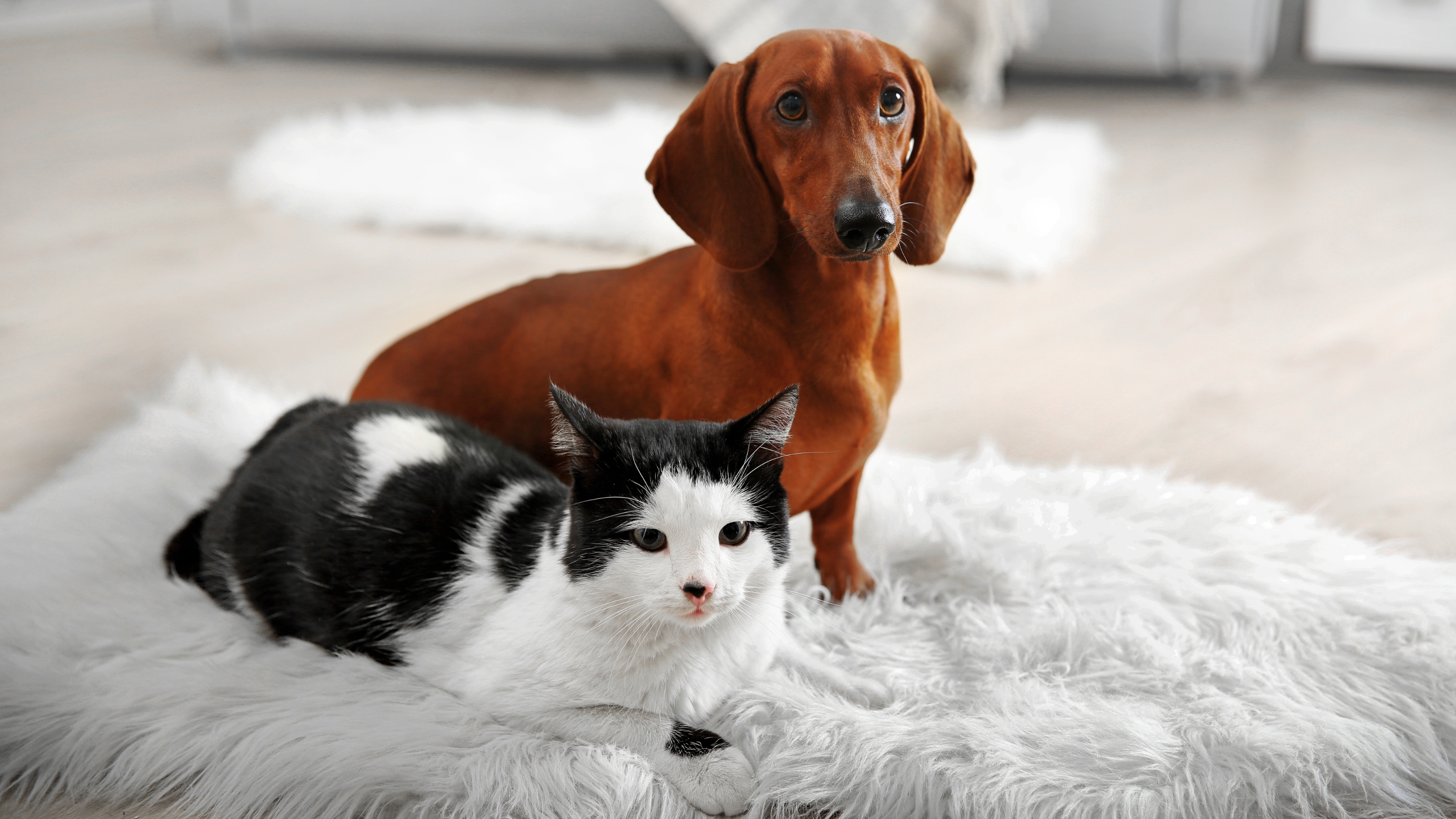
Protect your furry friends with our pet-friendly pest-control ideas that are effective in getting rid of those creepy crawlies without harming your dogs, cats, or other pets.
Whether you need to get rid of ants, roaches, or any other insects that may have invading your home this summer, we've asked pest control and animal experts for their top non-toxic solutions.
They've also earmarked which ingredients to watch out for when buying commercial pest-control products to keep your pets safe. As soon as you identify the bugs in your home, you'll be ready to start getting them under control.
Why pet-friendly pest-control ideas are key
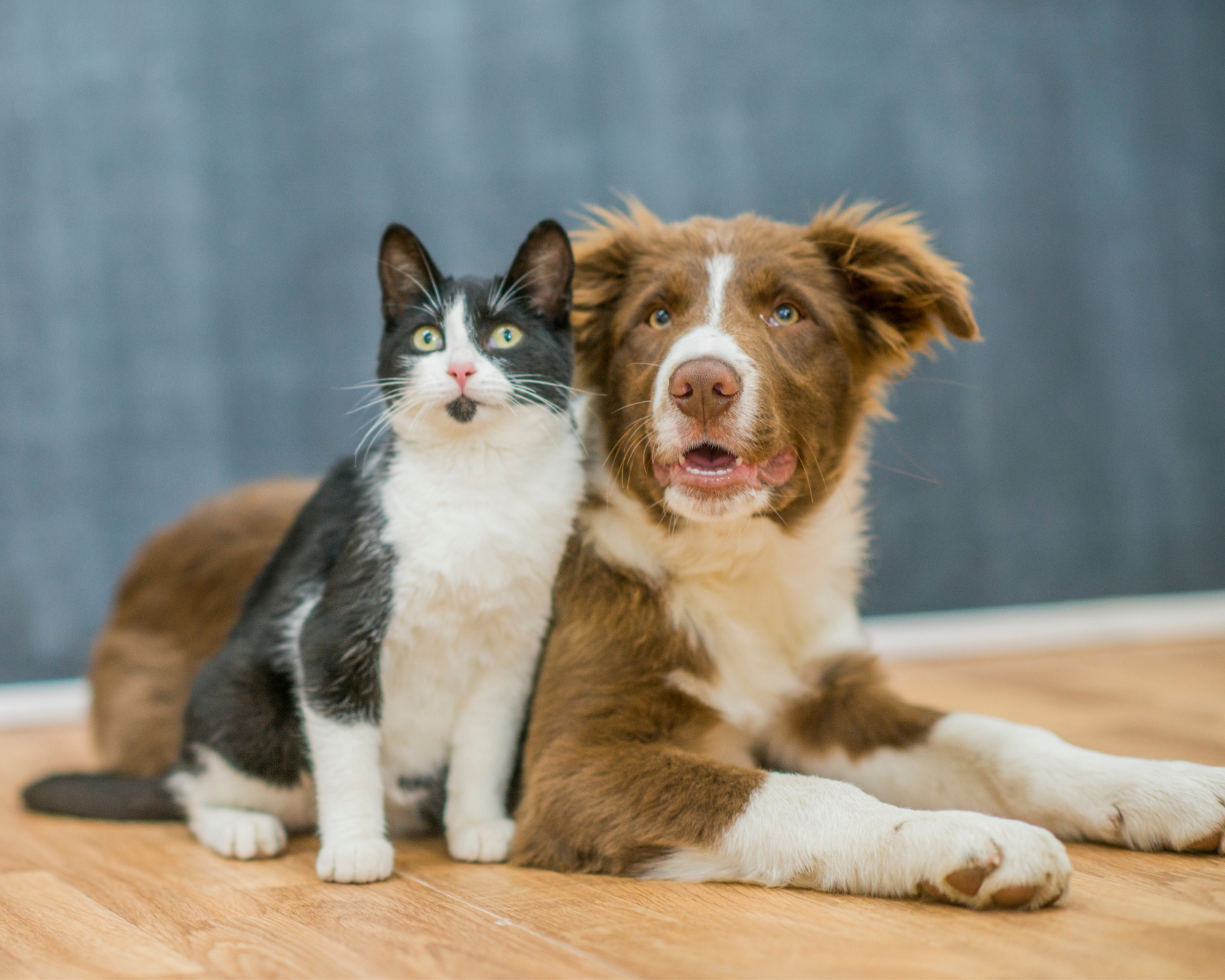
During the warmer months, you may find yourself in a panic looking for things that repel pests. You may be trying to get rid of ants or combating spiders left and right. But before you go all-out with the ant spray, you may want to give some thought to the health of your furry friend.
"Many conventional pest control products can harm animals. Ingredients like permethrin and pyrethroids, often found in insecticides, are particularly dangerous," says Dr. Kathryn Dench (MA VetMB), Chief Scientific Advisor at Paw Origins.
These ingredients can be pretty harmful to cats and dogs.
"In my clinical experience, I've seen cases where pets suffered from tremors, seizures, and even fatalities due to exposure to these chemicals. Rodenticides containing anticoagulants can cause severe internal bleeding if ingested by pets. It's also essential to be cautious with snail and slug baits, as these often contain metaldehyde, which is highly toxic to dogs and cats," says Dr. Kathryn.
While that sounds pretty worrying, don't fret. There are actually some non-toxic ways to keep bugs out of your home this summer.
Brett Bennett, Director of Operations, PURCOR Pest Solutions,says, "Lots of common pest control products will harm animals, although increasingly there are more and more options that use gentler or more naturally sourced ingredients that will get rid of bugs while still being non-toxic to pets like cats and dogs. There are also tons of more DIY pest control methods you can try."
If you're unsure whether a product may be toxic to your pet, please consult with a veterinarian before buying and check the Pet Poison Helpline’s toxicity list. If you think your pet may have come into contact with a toxic substance, contact your veterinarian immediately.
- Pet Poison Helpline: 855-764-7661
- ASPCA Animal Poison Control Center: 888-426-4435
Try Diatomaceous earth
Avoid making common pest-control mistakes like improperly using pest-control products and instead try a non-toxic substance. Experts agree diatomaceous earth, a natural powder made from fossilized algae, is a good way to start.
"Diatomaceous earth is a natural option that can be effective against ants and other insects. It is safe for pets when used correctly and works by dehydrating pests," says Dr. Kathryn.
Simply sprinkle the powder anywhere you think you're going to need it and will get to work fighting those nasty bugs and pests.
Brett adds, "The top option I tend to recommend is diatomaceous earth, which is great at killing insects like ants, wasps, and more while being completely harmless to pets. You can apply diatomaceous earth around thresholds you've noticed pests entering through, or even use outside around your plants and yard to help keep your garden pest-free," says Brett.
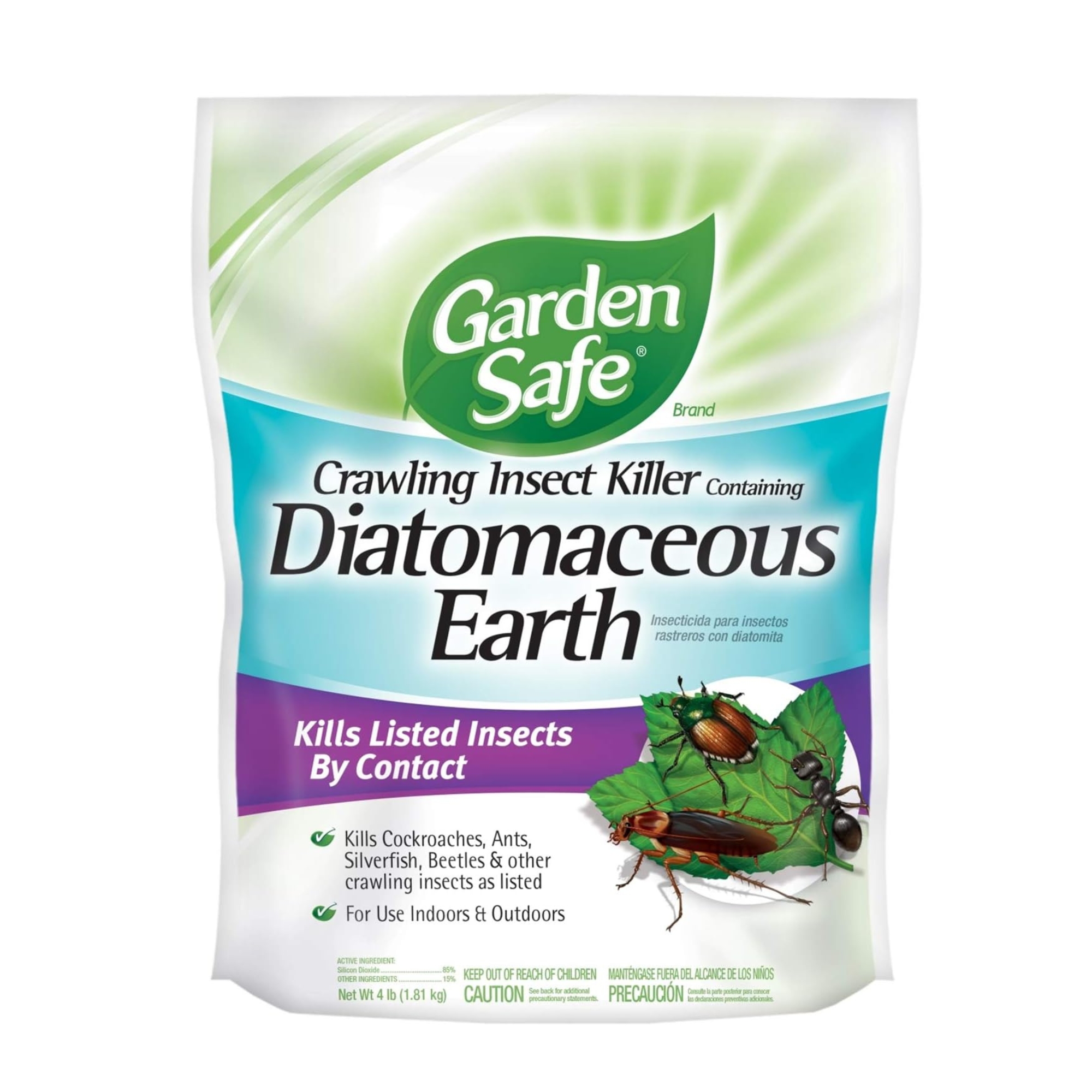
Price: $13.98
Size: 4.14-pounds
This bag of diatomaceous earth will help you combat cockroaches, ants, silverfish, beetles, fleas, and more. With over 3,000 ratings, one shopper said, "It works great even in carpets and can be vacuumed up without any issues." Use a hand duster, power duster, or squeeze bottle to distribute the powder around the house. Once applied, you should start to see results in 24 hours.
DIY solutions
Don't have any diatomaceous earth on hand? There are even more ways to get rid of roaches and fight flying ants. "Essential oils like peppermint, eucalyptus, and citronella can repel insects; however, they should be used with caution around pets, particularly cats, as some essential oils can be harmful if ingested or applied directly to the skin," says Dr. Kathryn.
This peppermint oil spray is Amazon's #1 bestseller with one reviewer saying, "I spray regularly in the bathroom, especially around the drains and bathtub, and I haven't seen a single earwig or spider."
You can use more specialized ingredients for specific pests, too. "For roaches and ants, a mixture of sugar and boric acid can be an effective bait that is less toxic than conventional chemicals but should still be placed out of reach of pets," says Dr. Kathryn.
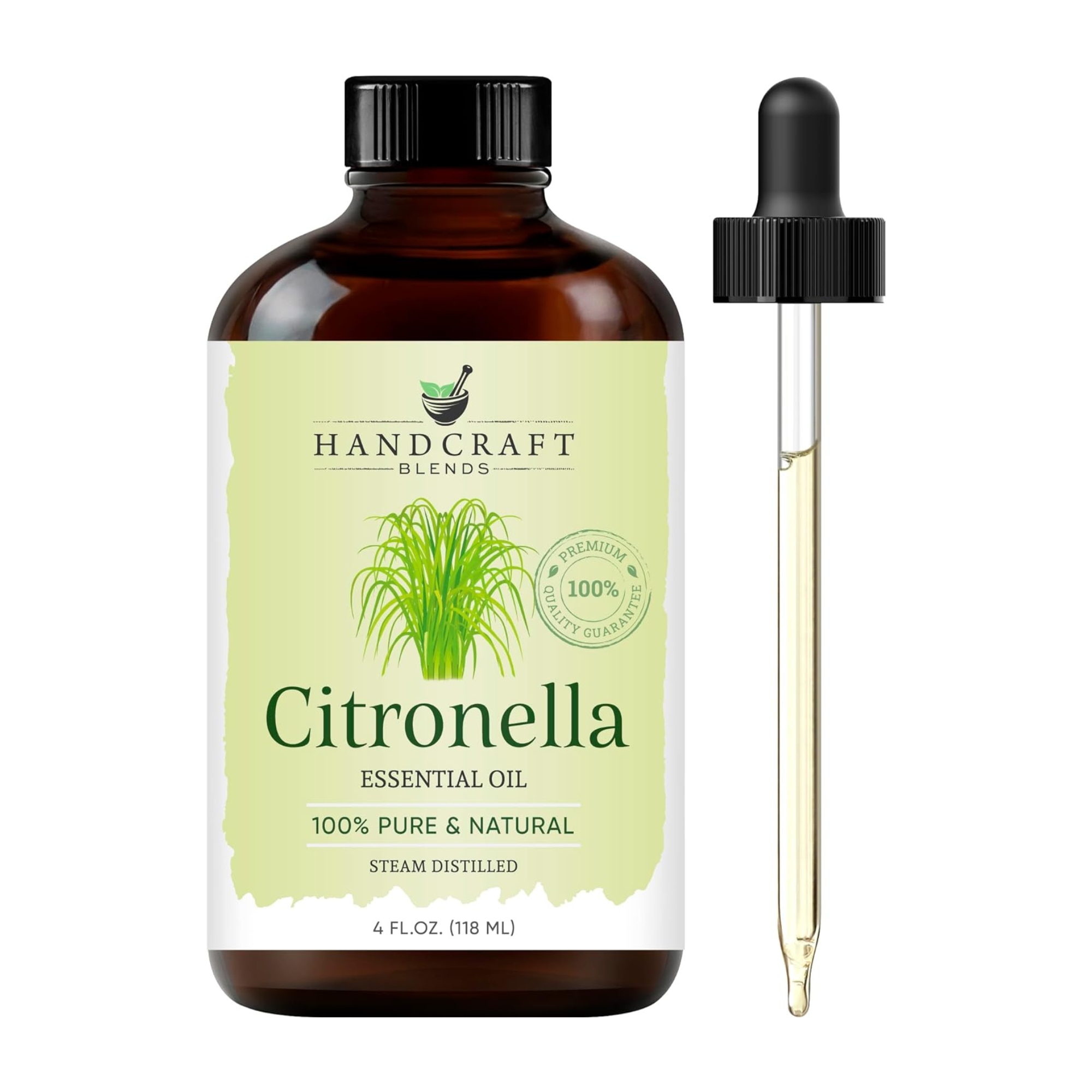
Price: $9.99
Size: 4 Fl Oz
Citronella is a great choice if you're looking for a scent that's bright and fresh. The lemony, grassy aroma helps combat insects that may come into your home. This bottle from Handcraft Blends is Amazon's #1 bestseller in essential oil singles with over 100,000 ratings averaging at 4.5/5 stars.
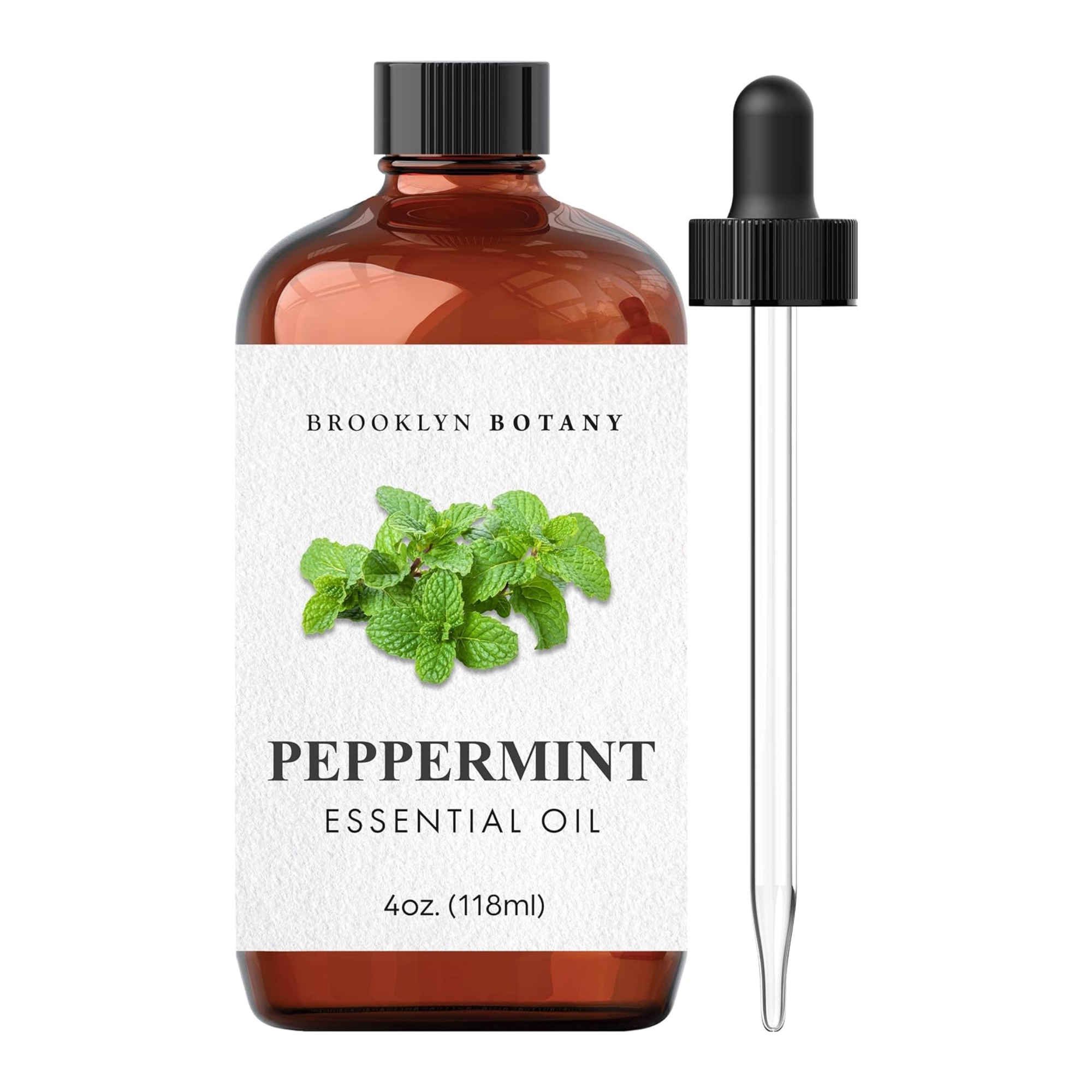
Price: $9.99
Size: 4 Fl Oz
Peppermint oil is another great choice if you're looking for something minty and refreshing. Sourced in India, this peppermint oil can also be used in your hair to combat a dry scalp. It's great for pest control, as one user said, "I use this as a bug repellent during the summer and it works better than I expected."
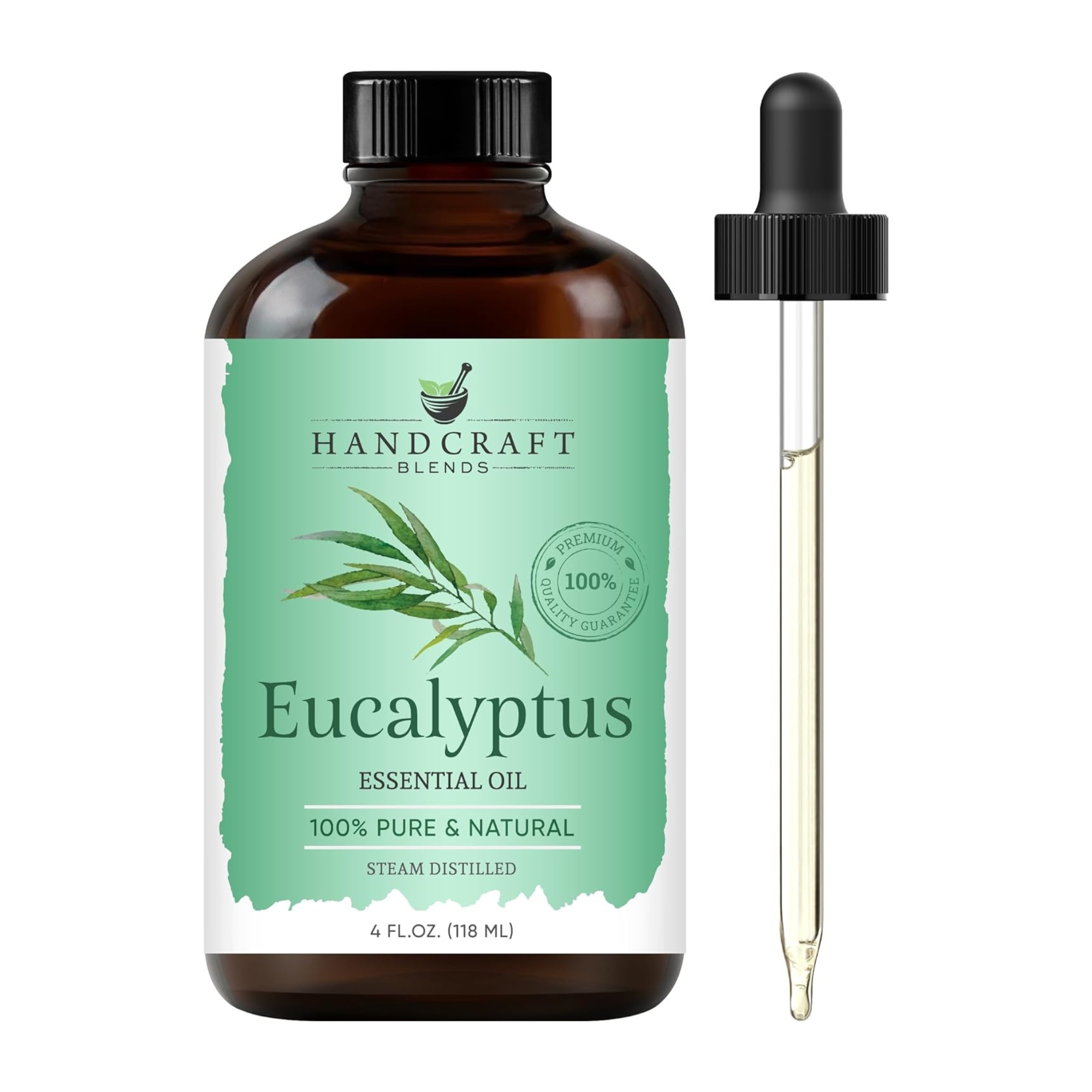
Price: $9.99
Size: 4 Fl Oz
Prefer something a little earthy? Eucalyptus oil has a bold, herbal smell that many find relaxing. It's great at repelling bugs like ants or spiders, with one reviewer saying, "I just drop or spray it all over the kitchen and they don't come back for weeks." The amber glass bottle keeps out UV rays and protects the oil from degrading in sunlight.
Pest management techniques
Instead of products, you can also take some action to fight off pests, like cleaning your house from top to bottom.
Dr. Sabrina Kong, DVM & staff veterinary writer at WeLoveDoodles, says, "Integrating pest management techniques can also help manage pests safely. This includes keeping your home clean, sealing entry points, and using physical barriers like screens and door sweeps. Regularly cleaning pet feeding areas and storing pet food in sealed containers can also help prevent attracting pests."
You can also combat pests with other predators that will fight them off.
"Another non-toxic approach is introducing natural predators, such as beneficial nematodes for garden pests," says Dr. Sabrina. These are usually sold by specialist retailers.
What should pet owners look out for when buying pest control products?
Check the ingredients on any commercial pest killer and what out for these.
Dr. Kathryn recommends "looking for keywords like 'pet-friendly' or 'safe for pets'" and steering clear of ingredients such as permethrin, pyrethroids, and organophosphates, which can be toxic to animals.
She adds, "Additionally, consider the mode of application — sprays and powders can easily be ingested by curious pets, whereas traps and baits can be more controlled and less likely to come into contact with your pets."
There are plenty of chemicals and cleaning products you may be using indoors that could potentially harm your pet but the same goes for outdoors, too. Be sure to check the plants and flowers around your yard for any harmful properties.
Get to know which houseplants are toxic to dogs before investing in new greenery and look for pet-friendly plants instead.







